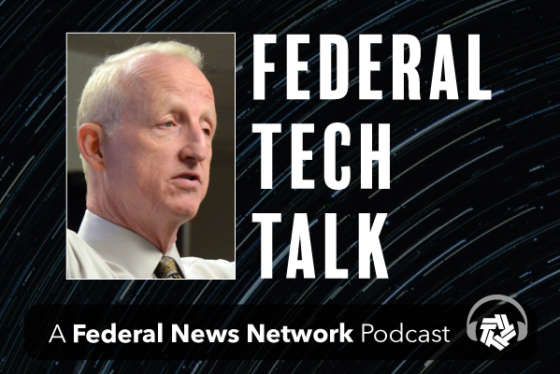Business Intelligence: A better definition
Rick "Ozzie" Nelson, vice president and general manager for the Public Sector at MicroStrategy, joins host John Gilroy on this week's Federal Tech Talk to talk ...
Best listening experience is on Chrome, Firefox or Safari. Subscribe to Fed Tech Talk’s audio interviews on Apple Podcasts or PodcastOne.
Most listeners have heard of MicroStrategy as a company that provides BI, or business intelligence. BI is commonly interpreted as graphically presented data.
Rick “Ozzie” Nelson is the vice president and general manager for the Public Sector at MicroStrategy, and he joins host John Gilroy on this week’s Federal Tech Talk to discuss the need for a better definition of the concept of business intelligence.

Today’s MicroStrategy provides much more than a visual depiction of information. In today’s federal government, professionals access from a smartphone as often as a desktop. For this reason, MicroStrategy begins the discussion with data that is friendly to a small screen.
It doesn’t end at the presentation layer. Using proprietary technology, MicroStrategy takes piles of data sets and can make sense of the critical information as contrasted with the misleading data. The term they use is the “semantic” layer.
Combining small-screen-friendly presentation with a deeper understanding of data sets, MicroStrategy moves information from artificial intelligence to what they term “Hyperintelligence.” This phrase described as a word means that federal information technology professionals can get more information out of the tools they possess.
Nelson ends the conversation with his observances on concepts like machine learning and voice search. End users are using voice to gather information to make decisions. If that is the case, then organizations must consider voice when presenting data points to analyze complex problems.
Copyright © 2024 Federal News Network. All rights reserved. This website is not intended for users located within the European Economic Area.







